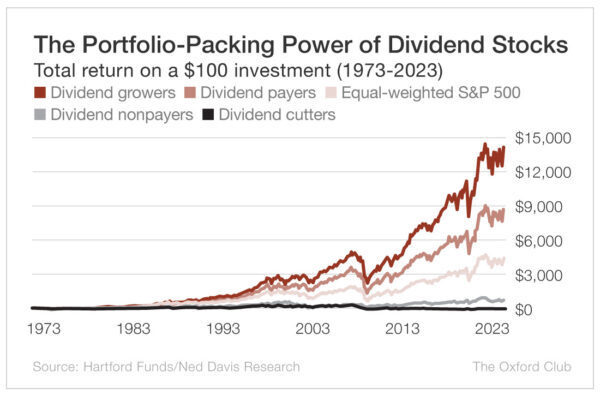Microsoft, Three Mile Island, and the Future of AI-Powered Energy Investments
In a significant turn of events, the infamous Three Mile Island nuclear power plant is set to be revitalized, with the sole purpose of fueling Microsoft’s growing AI ambitions. As data centers around the world demand more energy, especially with the rise of artificial intelligence, tech giants like Microsoft are turning to reliable, carbon-free sources like nuclear power. For investors, this move is a critical signal of both the changing energy landscape and the increasing intersection of AI and sustainability.
The Revival of Three Mile Island
Three Mile Island (TMI), located in Pennsylvania, is a landmark in the history of nuclear energy, though not for the best reasons. It was the site of the most severe nuclear accident in U.S. history in 1979, which led to the closure of one of its reactors, TMI-Unit 2. However, TMI-Unit 1 operated successfully until 2019 when economic factors led to its closure. Now, thanks to a partnership between Constellation Energy and Microsoft, TMI-Unit 1 is expected to come back online by 2028, producing over 800 megawatts of carbon-free energy.
This is no ordinary energy deal. Constellation Energy’s partnership with Microsoft marks its largest-ever agreement, with Microsoft committing to purchase all the energy generated by the plant. This is part of Microsoft’s broader strategy to meet the energy needs of its data centers, which are increasingly being utilized to power AI applications.
The AI-Energy Nexus
Artificial intelligence, particularly in the form of large-scale models, requires vast amounts of computational power. This means more data centers, more servers, and consequently, a significantly larger energy footprint. Microsoft’s latest AI-driven initiatives, such as its cloud services, generative AI models, and advanced computing systems, have placed immense pressure on the company to secure reliable, always-on energy sources.
Nuclear energy, long criticized for its risks and waste issues, is now being revisited by tech companies as a potential solution. Unlike wind and solar, which can be intermittent, nuclear plants provide a steady, constant supply of energy 24/7, making them ideal for energy-intensive AI operations. According to experts, AI data centers may need to operate at full capacity continuously to keep up with processing demands, and few energy sources outside of nuclear can meet that requirement reliably.
What This Means for Investors
For investors, the Constellation-Microsoft deal offers valuable insights into the future of AI and energy investments:
- Nuclear Energy is Back on the Table: As governments worldwide push for cleaner energy solutions, the nuclear industry is seeing renewed interest. The Biden administration’s climate bill, which offers billions in tax credits for clean energy projects, has made deals like this one financially viable. Constellation Energy’s stock saw a 16% surge following the announcement, signaling investor optimism about nuclear’s future in the energy mix.
- AI is Driving Demand for Sustainable Energy: As AI technologies expand, they are reshaping industries, economies, and now, energy markets. Data centers, which power AI systems, consume an enormous amount of electricity, and companies like Microsoft are proactively seeking carbon-free solutions. Investors should keep an eye on AI-focused companies that are forming partnerships to ensure sustainable growth.
- Opportunities in Infrastructure and Clean Energy: The revival of TMI-Unit 1 is part of a larger trend where older energy infrastructure is being repurposed to meet modern demands. With AI, electric vehicles, and renewable energy all converging to require more electricity, investors in energy infrastructure and utilities are likely to benefit from long-term growth.
- Microsoft’s Role as a Clean Energy Leader: Beyond AI, Microsoft’s commitment to decarbonizing its operations is driving a larger shift in corporate energy use. The company’s investments in nuclear, along with other energy initiatives like small modular reactors, signal a trend where tech companies are becoming major players in the clean energy transition.
Conclusion: The Future is AI-Powered and Carbon-Free
As Microsoft prepares to reopen Three Mile Island’s reactor to fuel its AI-powered future, the implications for the energy market and investors are profound. Nuclear energy, once considered a relic of the past, is making a comeback thanks to its ability to provide reliable, carbon-free power, which is essential for the growing demands of AI technology. For investors, this signals new opportunities in both the energy and tech sectors, where AI is not just shaping the future of industries but also the very infrastructure that supports them.
Investing in companies that bridge the gap between AI and clean energy could be the key to capitalizing on this rapidly evolving market. As AI continues to expand, so too will the need for sustainable, always-on energy sources like nuclear. In this new AI-powered world, energy is not just about meeting today’s needs—it’s about building the infrastructure for tomorrow’s innovations.
About Russ Amy
Hey there! I’m Russ Amy, here at IU I dive into all things money, tech, and occasionally, music, or other interests and how they relate to investments. Way back in 2008, I started exploring the world of investing when the financial scene was pretty rocky. It was a tough time to start, but it taught me loads about how to be smart with money and investments.
I’m into stocks, options, and the exciting world of cryptocurrencies. Plus, I can’t get enough of the latest tech gadgets and trends. I believe that staying updated with technology is key for anyone interested in making wise investment choices today.
Technology is changing our world by the minute, from blockchain revolutionizing how money moves around to artificial intelligence reshaping jobs. I think it’s crucial to keep up with these changes, or risk being left behind.





